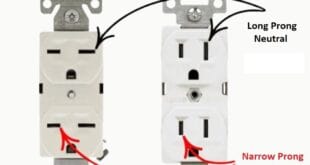Answer:
Solar energy is transformed into electrical energy through the use of photovoltaic cells. These cells, commonly known as solar panels, convert sunlight into electricity using the photovoltaic effect.

Reasoning:
- Photovoltaic Cells: Solar panels consist of photovoltaic cells made of semiconductor materials, typically silicon.
- Photovoltaic Effect: When sunlight strikes the solar panel, photons in the light interact with electrons in the semiconductor, generating an electric current.
- DC Electricity Generation: The generated current is in the form of direct current (DC), as opposed to the alternating current (AC) used in homes.
- Inverter Conversion: An inverter converts the DC electricity into AC, making it compatible with the electrical grid and household appliances.
- Net Metering: Excess electricity generated can be fed back into the grid, and homeowners may receive credits for the surplus power.
- Battery Storage: Some systems incorporate batteries to store excess energy for later use, providing a reliable power source during low sunlight periods.
- Efficiency: Ongoing advancements in solar technology enhance efficiency, allowing more electricity to be generated from the same amount of sunlight.
- Solar Tracking: Tracking systems adjust the orientation of solar panels to maximize sunlight exposure, optimizing energy production.
- Off-Grid Systems: In remote areas, solar energy systems can operate independently, providing electricity without connection to the main power grid.
- Environmental Benefits: Solar energy is a clean, renewable source, producing electricity without emitting greenhouse gases or pollutants.
FAQs:
Q: How do solar panels work?
A: Solar panels convert sunlight into electricity through the photovoltaic effect in semiconductor materials.
Q: What type of electricity do solar panels produce?
A: Solar panels generate direct current (DC) electricity, which is converted to alternating current (AC) for household use.
Q: Can excess solar power be stored?
A: Yes, some systems use batteries to store excess energy for use during periods of low sunlight.
Q: How does an inverter work in a solar system?
A: An inverter converts DC electricity from solar panels into AC, making it compatible with household appliances.
Q: What is net metering in solar energy?
A: Excess electricity generated can be fed back into the grid, with homeowners receiving credits for surplus power.
Q: Do solar panels work in cloudy weather?
A: While sunlight exposure is reduced, solar panels can still generate electricity in cloudy conditions.
Q: Can solar panels operate off the grid?
A: Yes, in remote areas, solar energy systems can function independently, providing electricity without grid connection.
Q: How efficient are modern solar panels?
A: Ongoing advancements in technology have improved solar panel efficiency, maximizing energy production.
Q: What is solar tracking?
A: Solar tracking systems adjust panel orientation to optimize sunlight exposure, enhancing energy generation.
Q: What are the environmental benefits of solar energy?
A: Solar energy is a clean, renewable source that produces electricity without emitting greenhouse gases or pollutants.
 Electrical Engineering World Wiring a Brighter Tomorrow!
Electrical Engineering World Wiring a Brighter Tomorrow!


